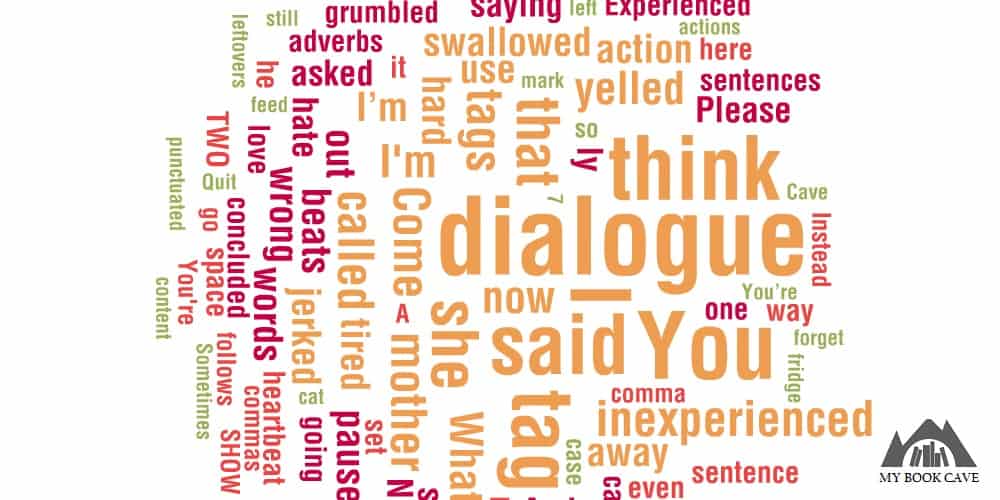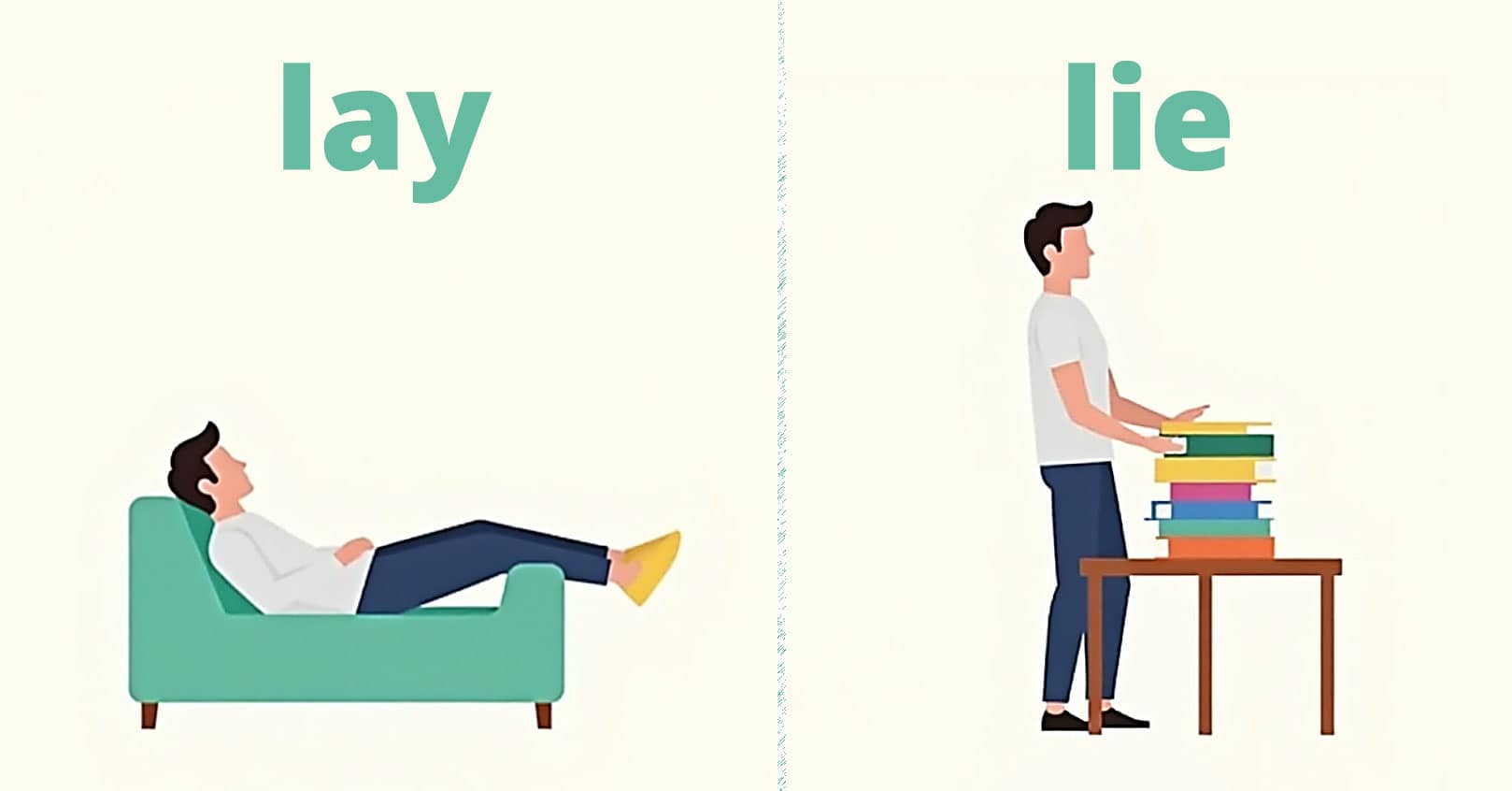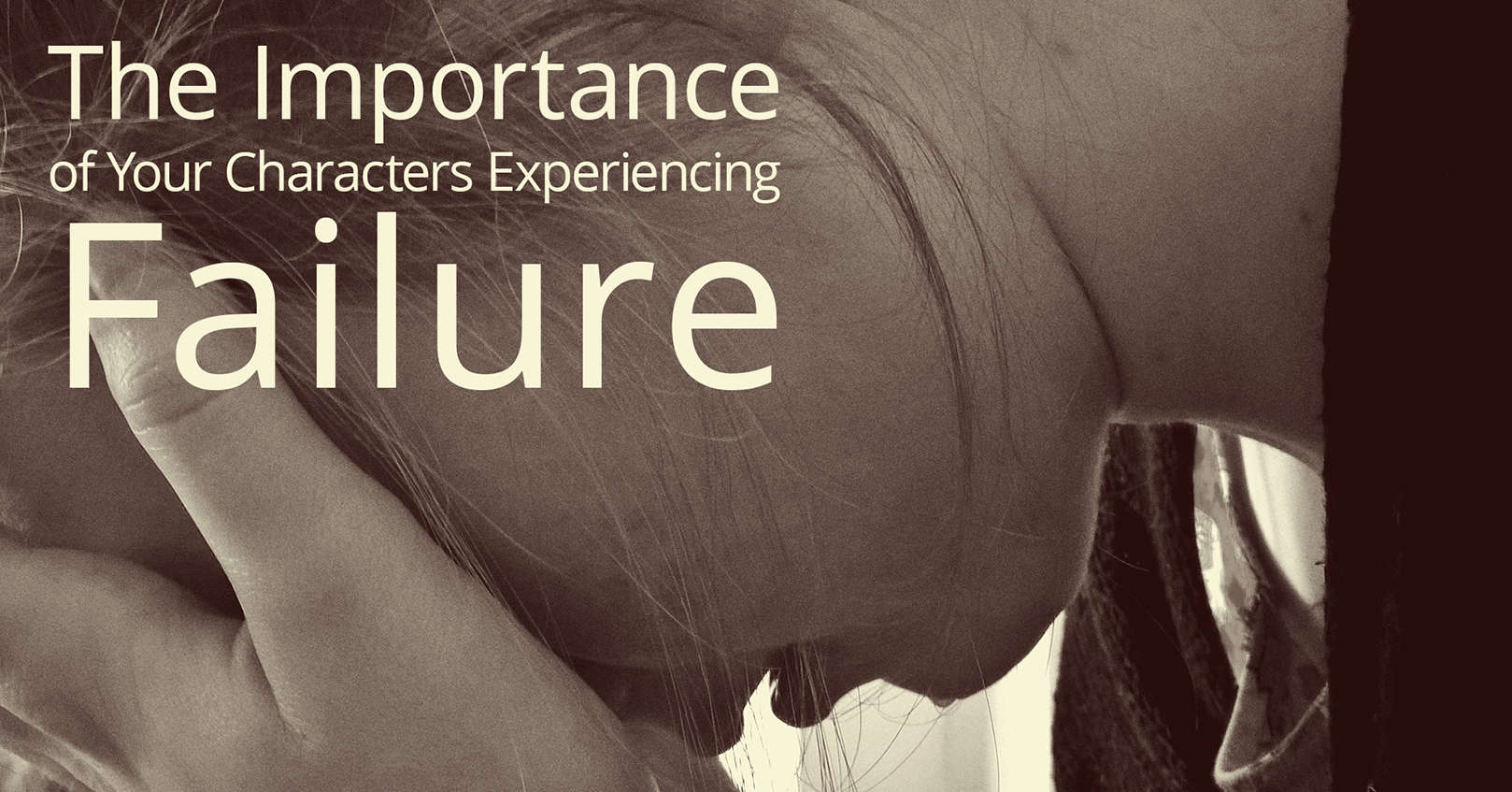
Do you get sick of writing “he said/she said,” or are you unsure how to punctuate dialogue tags? Do you use too many -ly adverbs that drive readers crazy? Dialogue tags can be complicated—something the editors at Book Cave, have noticed when reviewing books. But worry no more. Here are eight tips that will help you effectively write and punctuate dialogue tags well, so that your book will be one step closer to promotion on our content-rated book site.
1. Punctuated with a comma
Often dialogue is punctuated with a comma that separates it from the tag that immediately follows. In this case, the “said” tag should not be capitalized and, in America, the comma always goes inside the quotation mark.
Right: “I’m so tired,” she said.
Wrong: “I’m so tired” she said.
Wrong: “I’m so tired,” She said.
Wrong: “I’m so tired.” She said.
Wrong: “I’m so tired.” she said.
Right: He yelled, “Come back here!”
Wrong: He yelled “Come back here.”
2. Punctuated with question marks or exclamation points
Sometimes dialogue tags are punctuated with question marks or exclamation points. In this case, you still do not capitalize the tag that follows.
Right: “Quit that right now!” she yelled.
Wrong: “Quit that right now!” She yelled.
Right: “What are you saying?” she asked.
Wrong: “What are you saying?” She asked.
3. Ends in a period or other punctuation
Many times a dialogue ends in a period or other punctuation, and the dialogue tag that follows is capitalized. This happens only when the “tag” is an action rather than describing a way of saying something. Theses actions are called beats or descriptive beats, and they are complete sentences on their own. (Please see #7 for more about beats.)
Right: “I think so.” He nodded.
Wrong: “I think so,” he nodded.
Wrong: “I think so.” he nodded.
Right: “You’re wrong.” She jerked away.
Right: “You’re wrong!” She jerked away.
Right: “I’m wrong?” She jerked away.
Wrong: “You’re wrong,” she jerked away.
Wrong: “You’re wrong!” she jerked away.
Wrong: “I’m wrong?” she jerked away.
4. Inserted into the middle of a sentence
A dialogue tag can be inserted into the middle of a sentence. When this happens, the dialogue tag is set off with commas, and the sentence is capitalized as if the dialogue tag weren’t there.
Right: “Andy,” his mother called, “come here now!”
Wrong: “Andy,” his mother called, “Come here now!”
Note: However, in this particular case, the mother just might be using TWO sentences (Andy! Come here now.), depending on how she is calling or what you want to emphasize as the author, which would mean it is also correct to have a period after the dialogue tag:
Right: “A-a-a-andy,” his mother called. “Come here now!”
Right: “Andy!” his mother called. “Come here now!”
Be careful when you break up dialogue with a tag. Set it off with commas only if it’s interrupting a sentence, and not when it’s simply stuck in between two sentences. One way to tell is to take out the tag and punctuate the sentences correctly, and then insert the tag.
Right: “That’s what I believe,” she concluded. “What do you think?”
Wrong: “That’s what I believe,” she concluded, “what do you think?”
Note: When an action interrupts a quote, The Chicago Manual of Style says to set off the “tag” with em dashes, such as in this next example. The rest of the dialogue sentence is not capitalized.
Right: “You think”—he paused for the space of a heartbeat—“she did that?”
Wrong: “You think,” he paused for the space of a heartbeat. “She did that?”
Wrong: “You think.” He paused for the space of a heartbeat. “She did that?”
Wrong: “You think.” He paused for the space of a heartbeat, “She did that?”
Right: “You think”—he swallowed hard—”she did that?”
Wrong: “You think,” he swallowed hard. “She did that?”
Wrong: “You think.” He swallowed hard. “She did that?”
Wrong: “You think,” he swallowed hard, “She did that?”
Such dialogue tags can also be rewritten altogether: “You think . . .” He paused and swallowed hard. “You think she did that?”
5. Shake up the “she said/he said”
You can shake up the “she said/he said” tags with other words like yelled, called, screamed, cried, grumbled, choked out, mumbled, reasoned, concluded, joked, etc. However, these should absolutely not be overused and doing so is clearly the mark of an inexperienced author.
Inexperienced:
“I won’t go,” she grumbled, glaring at him.
He screamed, “You will go and like it!”
“I hate you,” she choked out.
“Please trust me,” he reasoned. “It’s for your own good.”
“You hate me,” she concluded.
Yes, this might be exaggerated, but if you have successive “creative” dialogue tags like this, even if you have a little more action and dialogue in each paragraph, it is not good writing. “Said” is almost invisible, but these words are not.
6. Words like “laughed” and “grinned” are actions
Words like “laughed” and “grinned” are actions, not ways of saying something, so those words are separated from the dialogue with a period, not a comma. Don’t go too overboard, though. Again, sometimes a simple “he said” is all that’s needed.
Right: “I did it this morning.” He beamed.
Right: She laughed. “I did it this morning.”
Wrong: She laughed, “I did it this morning.”
Wrong: “I did it this morning,” he grinned.
7. Beware the -ly adverb addiction
Beware the -ly adverb addiction; in fact, avoid them like the plague. Only inexperienced authors resort to use too many -ly adverbs. Our suggestion is to have maybe a couple or a half dozen in an entire novel because there are much better ways to SHOW rather than tell how the character is feeling.
Inexperienced:
“I’m so tired,” she said dully.
“Maybe you’re right,” the teacher said thoughtfully.
“Come back here!” he yelled emphatically.
“I hate what you have done,” she said angrily.
“Cry about it, why don’t you?” he said mockingly.
“I can’t wait!” she said happily.
“When will he get here?” the child asked nervously.
Note: some exceptions might be to very occasionally use “softly” or “quietly,” but even these can be changed to something like this:
“I’m exhausted.” Her voice was so quiet he had to lean forward to catch the words.
Instead of -ly adverbs, use creative beats to tag dialogue. These show action instead of telling the reader how to feel, so here are a few more examples to show how longer beats can replace “said” and -ly adverbs.
Experienced: “I’m not going to my room!” Amy stomped her foot and glared at her mother.
Inexperienced: “I’m not going to my room!” Amy yelled angrily.
Experienced: “Do I have to do this?” She folded her hands together to hide their trembling.
Inexperienced: “Do I have to do this?” she asked, fearfully.
Note that sentences with -ly adverbs are shorter and easier to write, but they are also repetitive and lazy. Lazy writing is never good writing.
8. Leave out the dialogue tag
Often, you can simply leave out the dialogue tag, rather than replacing it with a beat (as shown in the previous tip).
Experienced:
“I hate this song,” he grumbled.
“What? But I love it!” Claire reached to turn the music louder, grinning at her brother.
“Please, no.”
“Have you ever even listened to it all the way through?”
“I don’t need to.”
Inexperienced:
“I hate this song,” he grumbled.
“What? But I love it!” Claire reached to turn the music louder, grinning at her brother.
“Please, no,” he pleaded.
“Have you ever even listened to it all the way through?” she asked.
“I don’t need to,” he said.
Note: This technique usually only works if the conversation is taking place between two people. If there are more than two people present in the scene, readers will be confused about who’s saying what.
Also, never use multiple tags in one paragraph (in other words, when one person is talking the whole time), especially not “said.” Instead, use beats (action) if you feel you need action to break up the dialogue or explain something.
Experienced:
“I’m going out,” his mother called over her shoulder. “Don’t forget to feed the cat.” She paused in the doorway. “Oh, and I put some leftovers in the fridge for you to eat later. Love you!”
Inexperienced:
“I’m going out,” his mother called over her shoulder. “Don’t forget to feed the cat,” she added. “Oh, and I put some leftovers in the fridge for you to eat later,” she said. “Love you!”
Let us know below if you have any questions about punctuating dialog tags.
















Hello Catiaa.
I just wanted to know how do you quote a famous song or film in a dialogue speech. Do you use italics or single quotation marks?
Thanks Hina
Tips clearly helps you strengthen and overcome using weak or redundant words, and or verbs, nouns, adverbs,ect.Great structure for more profound writting experiences.
Very resourceful and practical.helps to make writing more desirable for the reader, and writer. Strengthens writing techniques and overall gives you helpful insight on writing more in depth dialogue.
You claim the dialog tag should be lower case after an ! or a ? I found online that the dialog tag should be capitalized after a ! or a ? So which is it?
After an exclamation point or question mark, if the dialog tag is something like “he said” or “she exclaimed,” then it would NOT be capitalized. If it is a descriptive beat like “he shook his head,” it WOULD be capitalized (see more about descriptive beats in the post above).
“Never!” she yelled.
“Never!” She shook her head violently.
Where did you read that dialog tags should be capitalized after an exclamation point or question mark? Either the person didn’t know what they were talking about, or the situation was different (for example, they were talking about descriptive beats or a quote and not actually a dialog tag).
Does ‘said’ need to be capitalized when it comes after some speech?
For example, is it
“Bla bla bla.” Said So-and-so.
or
“Bla bla bla.” said So-and so.
Just a quick example but it’s really hard to find an answer for this
No, “said” would not be capitalized (and it should be a comma before the closing quotation mark, not a period). So it would be this:
“Bla bla bla,” said Sally.
Hi, I have a question about commas before ‘ly’ words used to describe dialogue. Looking at 7. Beware the ‘ly’… above, I would have put commas before all the ‘ly’ words eg: ‘Don’t do that!’ she said, angrily or ‘That’s mine!’ she screamed, shrilly. Would that not be correct? You have one example of it, but you don’t explain it. Thanks!
I am responding to myself here – I see Charlotte Keith asked this 1 year ago. But could we have more from you about it? It’s fascinating – and a great blog! Thank you.
The above page says (part 6) “I did it this morning,” he grinned. = WRONG
But the first example in part 8 is:
“I hate this song,” he grumbled.
That seems contradictory.
I could see why that might seem contradictory, because you may see the word “grumble” to just mean mumbling sounds, rather than words. However, the definition of “grumble” is “to mutter in discontent,” and you can mutter words, but you cannot grin words.
It could be changed to “I hate this song,” he muttered discontentedly. (But “grumbled” works better!) So using a comma with “grumbled” would be correct.
Sure. It’s a finer point. One can also laugh words out so I guess using a comma in that case is appropriate too, entirely dependent on intention.
I do agree that it is dependent on intention in some cases. For example:
“I hate this song,” he grumbled. (I read this as him muttering “I hate this song.”)
“I hate this song.” He grumbled. (I read this as him saying, in a normal voice, “I hate this song,” and then muttering some other words under his breath. I find this usage ambiguous, so I would probably reword if this is what I meant: “I hate this song.” He muttered some choice words under his breath.)
For using a comma with “laugh,” we may have to agree to disagree on that one! 🙂 Because the definition of “laugh” is “to show emotion (such as mirth, joy, or scorn) with a chuckle or explosive vocal sound,” and I don’t see how someone can actually talk with explosive vocal sounds, but on the other hand, the definition of “grumble” IS a way of saying words, so I do see someone grumbling words. For “laugh” I would probably write something like, “That…is so…funny,” she choked out between bursts of laughter.
But you’ve pointed out something interesting about English: there are the rules, but how a person interprets them can vary!
Absolutely. Each character has constantly changing intentions and we need ways to make that clear. There are as many different sounding laughs as there are people and each person has an entire set of laughs, some of which they might only use once in an entire lifetime. A character may wish to use a sarcastic laugh to illustrate a point: “Ha, ha, ha. I thi-hink you are so fu-hu-hunny!” Or, as you’ve rightly noted, a laugh may be so huge that one couldn’t possibly do anything else but laugh. There’s an old movie where people keep dying of laughter.
Hello Catia Shattuck,
I am a self-publisher. I just completed my first children’s book. I am awaiting my
illustrations.
Your “8 Tips For Punctuating Dialogue” was very helpful with my simple text.
My free Grammarly program seemed to take me back and forth with corrections. Indicating wrong punctuation, and when changed also indicated the suggested change was wrong.
I like how you provided clarification with the punctuation for dialogue text and provided examples.
Thank you
That’s frustrating with Grammarly! Sometimes automated programs can’t be precise enough. But I’m glad to hear that this post helped.
I slightly disagree with using adverbs — I absolutely agree with using too many of them as they can profusely make statements exponentially harder to read. HA!
But as a short story writer, I find using them quite helpful. Instead of using ten words to get one point across, I can use “quietly” or “stealthily.” If I were writing a full length-novel, then sure, adverbs could be distracting. But I think the general, “All adverbs are lazy” sentiment is short-sighted. There is never a one-size-fits-all for anything.
Oh yes, adverbs definitely have their place! And sometimes an adverb is just what the sentence needs. But we do find that they are often used as a crutch, so we advise authors to evaluate their adverbs carefully while self-editing their books.
I would punctuate an action tag interrupting a quote mid-sentence, to use your example, like this – “You think,” He swallowed hard. “she did that?”
… because action tags are not part of the sentence – as in this example:
“You think . . .” He paused and swallowed hard. “You think she did that?”
Why treat them differently just because they are interrupting a sentence?
Are using the em dash or rewriting the only two options?
Thanks for pointing this out! Chicago does now recommend setting off action tags that interrupt dialogue with em dashes, not commas, so I’ll update the post to reflect that.
Here is Chicago’s example: “Someday he’s going to hit one of those long shots, and”—his voice turned huffy—“I won’t be there to see it.”
For the example above, here are two ways you could write it:
“You think”—he swallowed hard—”she did that?” (preferred)
“You think…” He swallowed hard. “She did that?”
Otherwise, the sentence would need to be rewritten.
Thank you!
I just saw this sentence, posted above: “Do I have to do this?” she asked, fearfully. My question is when do you use a comma after a tag ending in an adverb? Could this also be written as “she asked fearfully,” without a comma?
This would be fine without the comma as well, since it is only one word:
“Do I have to do this?” she asked fearfully.
Thanks! This was really helpful!
Writing my first novel–this is the best site I’ve found for clearing up my dialogue punctuation confusion. Hits the main points clearly, succinctly, and with funny examples. Thanks.
For now I’ll keep capitalizing them, and change if you say different when you reply.
I love this article and have it open while editing. Now I know for sure exactly how to do most of this.
Onto editing chapter six!
This is just what I needed! Thank you.
What about when dialogue ends with an unspoken inner-thought?
“Wandering hero, you don’t belong out here; go home.” Did this guy listen to anyone?
Arrg! Tks for any help.
To clarify, the unspoken inner thought is “Did this guy listen to anyone?” Your example is correct; the following thought is capitalized.
What about this one? I’m thinking that “Sorry” needs to be capitalized because it’s the first spoken dialogue in the sentence. It looks weird to me if it’s not. Thanks for your help!
Determined to retain the upper hand, she said, “Sorry, but the deal’s still on.”
You’re right: dialogue is capitalized as if it were its own sentence, even if the dialogue tag comes first. So, this is correct:
Determined to retain the upper hand, she said, “Sorry, but the deal’s still on.”
Thank you!
Thank you so much for this. It’s been a great encouragement for me as a writer starting out. Dialogue is something that I believe makes a story that much more believable and meaningful. Having this resource has really helped me and solidified areas that I was unsure about doing, and have backing that it’s a good practice. Thank you.
I’m glad it helped!
“Heads up out there, girls,” Ellen warned, as she hit a lazy pop fly to Jesse.
“Heads up out there, girls,” Ellen warned as she hit a lazy pop fly to Jesse.
I’m looking at the tag. Which is better–comma or no comma?
The short answer is that this sentence is correct:
“Heads up out there, girls,” Ellen warned, as she hit a lazy pop fly to Jesse.
And here’s the long explanation:
The phrase “as she hit a lazy pop fly to Jesse” is a dependent clause. The Chicago Manual of Style says that if the dependent clause comes after the main clause (as it does here), then it should only get a comma if the clause is nonrestrictive (not essential to the meaning). Here, we can remove “as she hit a lazy pop fly to Jesse” without changing the meaning of the sentence, so that means the clause is nonrestrictive, and thus preceded by a comma.
Thanks!
Wonderful explanation. Thank you.
I wished I stumbled upon your blog before hand. It would’ve saved me a lot of grief. There’s some sites with very poor advice. Well, I believe its time to revise a lot of my novel’s dialogue. Thanks, Catia, for your awesome wisdom.
Thank you for this list! I have a question about #4. Why wouldn’t swallowed considered an action?
“Swallowed” is considered an action, but in this case, we set it off with commas because it is interrupting a sentence. It is acting similar to an interjection, which is set of with commas. This is the only time when an action tag would be set off with commas.
Here are some examples of correct usage:
“You think,” he swallowed hard, “she did that?”
“You think she did that?” He swallowed hard.
“You think . . .” He paused and swallowed hard. “You think she did that?”
“You think”—he swallowed hard—”she did that?”
Let me know if this doesn’t make sense!
Thank you for your detailed response. Now I get it. I had been struggling with how to punctuate interruption dialogue with a beat for weeks and most answers confused me more. Your clarification and examples made it crystal clear. Thank you again.
I’m glad it was clear! You’re very welcome.
Excellent! Love all of the examples clearly showing what to do and what not to do.